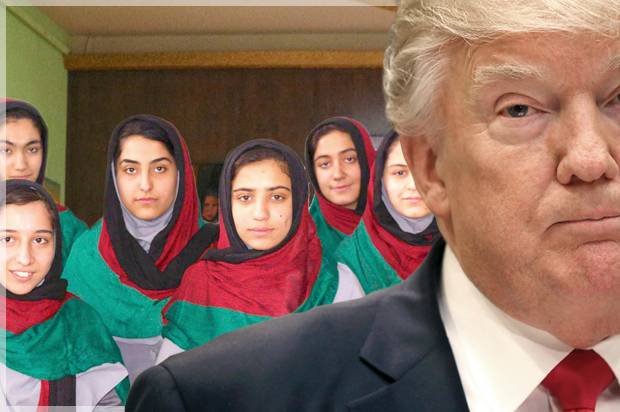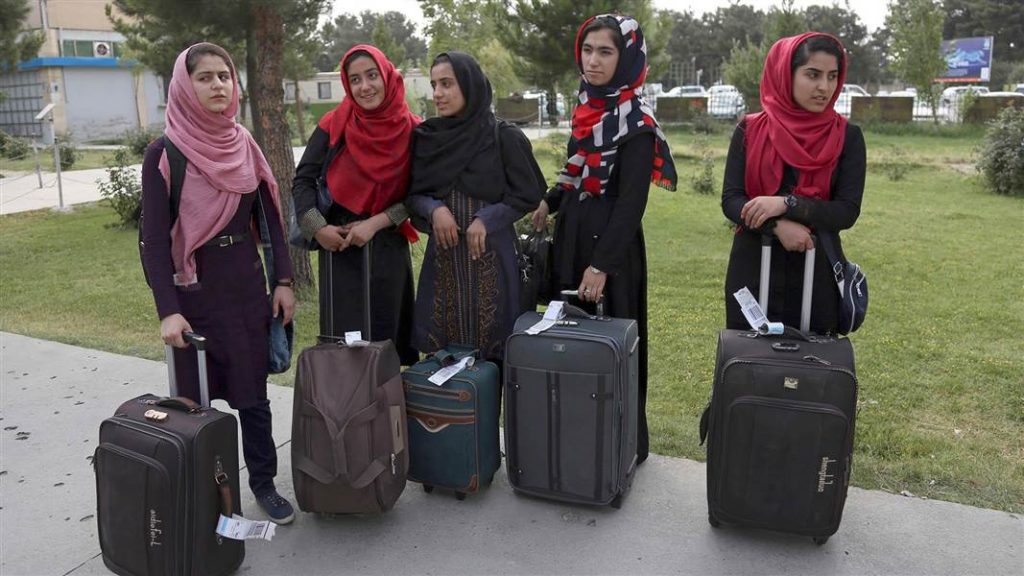In July, a group of teenage girls from Afghanistan were denied three times—twice from gaining visas to enter the United States and once from representing their country in an international robotics competition.
The robotics team from Afghanistan quickly landed top headlines as their story was spread around the world, exposing the paradigm of America’s strict foreign policy. Following high pressure, President Donald Trump intervened with the U.S. State Department’s ruling to finally allow the girls entry to the U.S. The team successfully arrived at the FIRST Global Challenge Robotics Competition in Washington, D.C., eager to participate.
These girls noticed and sprang into action.

“We were so interested, because we find a big chance to show the talent and ability of Afghans, [and] show that Afghan women can make robots, too,” said team member Rodaba Noori in an ABC interview. Even while dealing with the visa complications, the girls hastily prepared and practiced with the resources they had in such little time so that they could accomplish what they had been working toward for years.
The true reason their visas were denied was never revealed, but many believe it was out of concern that the team would not return to Afghanistan following the competition. Others say Trump’s immigration ban significantly interfered with their entrance.
But what was overlooked in all the controversy was the true cause of the girls’ success in earning visas: the high presence of social media activism that allowed for their voices to be heard. One American robotics team in particular made quite an impact after hearing of the adverse news. An all-girls team from the Potomac School in Virginia discovered the ordeal after reading an article, and they immediately took to finding the best possible way to spread the word about the Afghan team’s denial. The girls ultimately decided to create a petition directly targeted at the State Department, and they worked tirelessly to publicize it.
“Although Team Afghanistan’s robotics kit was held up in U.S. customs, the girls persisted and practiced creating robots out of household appliances,” the petition said. “These girls are not a threat in any way to the safety of U.S. citizens.”
We talked to the members of the Potomac School’s robotics team to learn more about their own background and why they advocated for the Afghan team.
Tell us about your own robotics team. What have been some of your key projects?
Anna: Last year, the four of us formed a robotics team in hopes to broaden our understanding of the engineering and computer science field. Since then, our team has competed in tournaments including the state and national championships, learned about the aspects of VEX program, spoken to girls about breaking stereotypes regarding girls in STEM, and grown extremely close.
Whitney: We’re an all-girls robotics team, which isn’t always easy, so we’ve focused a lot on that this year. We designed a comic book about a girl defying stereotypes and pursuing a STEM career, presented to the seventh and eighth grades at our school in hopes of getting more girls interested in STEM, and spoke at a Girls in Technology conference at Microsoft with some other girls from our school.
How has robotics shaped your own lives? Has it played any influence in your career goals?
Eleanor: Robotics has given me the opportunity to be creative and put my love of computer science to use. It has also made me realize I am interested in pursuing a career as a bioengineer.

